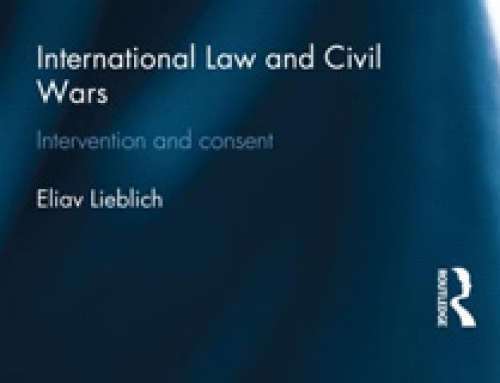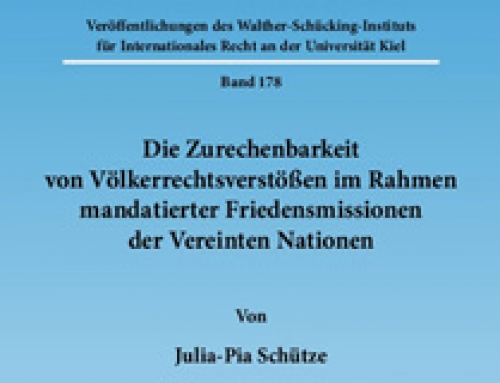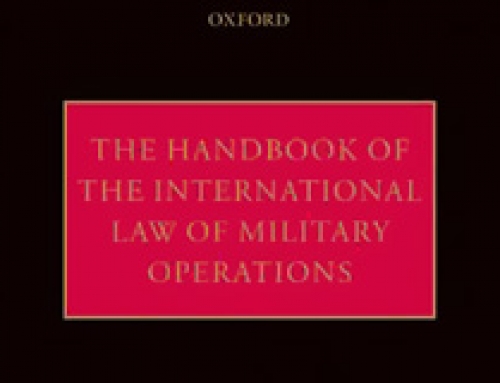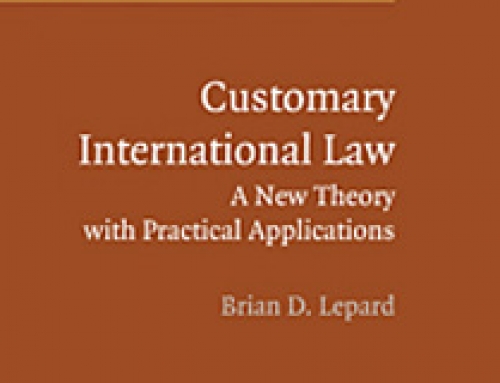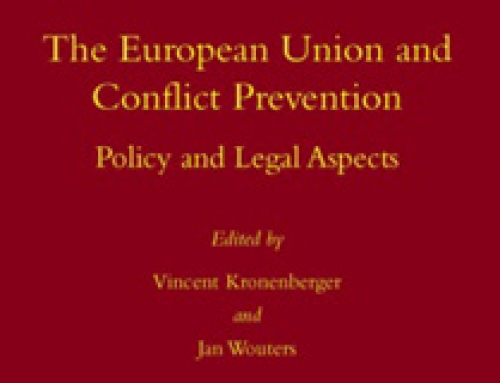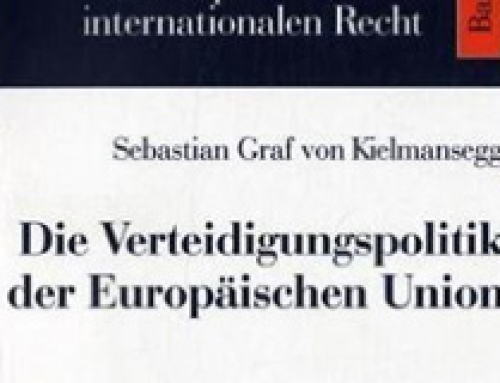
Terrorism and the State: Rethinking the Rules of State Responsibility. By Tal Becker. Oxford: Hart Publishing. 2006. 304pp. Index. £25. ISBN 1 84113 627 1.
Globalization and modern technology have enabled today’s terrorists to cause destruction on a vast scale without having to rely on the direction, expertise or assets of the State. While terrorist organizations thus enjoy a large degree of independence in the conduct of their operations, States continue to play a crucial role in their success by encouraging, tolerating, sheltering or otherwise indirectly supporting terrorist activates. Considerations of policy and justice suggest that States should be held accountable for private acts of terrorism where their own conduct has made these acts possible. However, as Tal Becker demonstrates, such accountability cannot be fully attained under the traditional regime of State responsibility. In his book, Becker therefore attempts to reconceptualize the rules of State responsibility in a way that better reflects contemporary forms of State involvement in private acts of terrorism.
The book opens by tracing the evolution of the law of State responsibility. Whereas in the past private wrongs were often attributed to the State based on theories of complicity and collective responsibility, from the early 20th century onwards international doctrine increasingly began to distinguish between the public and private sphere. States were now deemed responsible solely for their own acts and omissions, and no State responsibility arose for the conduct of private actors unless they acted as agents of the State or the State subsequently adopted their conduct as its own. Becker’s principal claim is that this ‘agency paradigm’ of State responsibility fails to do justice to the complex interaction between the State and private terrorist actors that we witness today.
As the author explains, international law imposes an obligation on States to prevent terrorist acts and to abstain from supporting or tolerating terrorist activity. Under the traditional rules on State responsibility, failure to comply with this duty means that the State concerned incurs responsibility only for the breach of its obligation to prevent and to abstain, but cannot be held responsible for the harm caused by private terrorist groups unless it can be established that these have acted on its behalf. Consequently, a State may provide a terrorist group with vital technological, financial and other assistance but still be able to avoid legal responsibility for the activities of that group as long as they are not locked into a principal-agent relationship. The problems inherent in this restrictive approach to State responsibility were clearly exposed in the aftermath of 9/11. In response to the 9/11 attacks, the United States declared that the Taliban, by harbouring Al-Qaeda, have incurred the same responsibility as the actual perpetrators of the attacks. While this position was shared by the overwhelming majority of the international community, many academic commentators found it difficult to reconcile with the conventional regime of State responsibility. According to Becker, this schism between theory and practice demonstrates that ‘States simply do not look at issues of responsibility in the technical way that lawyers have presumed that they do’ (p. 237). In fact, he suggests that traditional theories of State responsibility cannot account for the international response to 9/11, nor do they offer an adequate normative framework for dealing with the State’s involvement in terrorism.
In the final part of his book, the author attempts to remedy these defects by introducing principles of causation into the ‘agency paradigm’. The essence of this approach is to treat the State ‘as legally responsible for those acts of terrorism that are the consequences, in causal terms, of its wrongful acts or omissions’ (pp. 305–306). Significantly, causation-based responsibility is not meant to replace the ‘agency paradigm’, but merely to supplement it. Nor is Becker attempting to invent a new legal regime: principles of causation have been employed in a variety of international cases to establish the State’s responsibility. While not devoid of shortcomings, he believes that causation-based responsibility offers a more suitable conceptual tool than the traditional ‘agency paradigm’ for holding States responsible for assisting or acquiescing in terrorism.
Not only has Becker succeeded in producing a tightly argued yet elegantly written piece of legal scholarship, but he has also convincingly shown how principles of causation can be employed to hold States accountable for private acts of terrorism. His book makes an important contribution to the law of State responsibility. To his credit, Becker unhesitatingly admits that the weight of authority clearly backs the ‘agency paradigm’ of State responsibility, and that it is therefore questionable whether causation-based responsibility is already accepted as part of current international law. While the answer to this seems to be in the negative, one may expect that before long Becker’s arguments for broadening the scope of State responsibility for private acts of terrorism will be taken up on the international stage.
Published in (2006) 82 International Affairs 1204–1205


